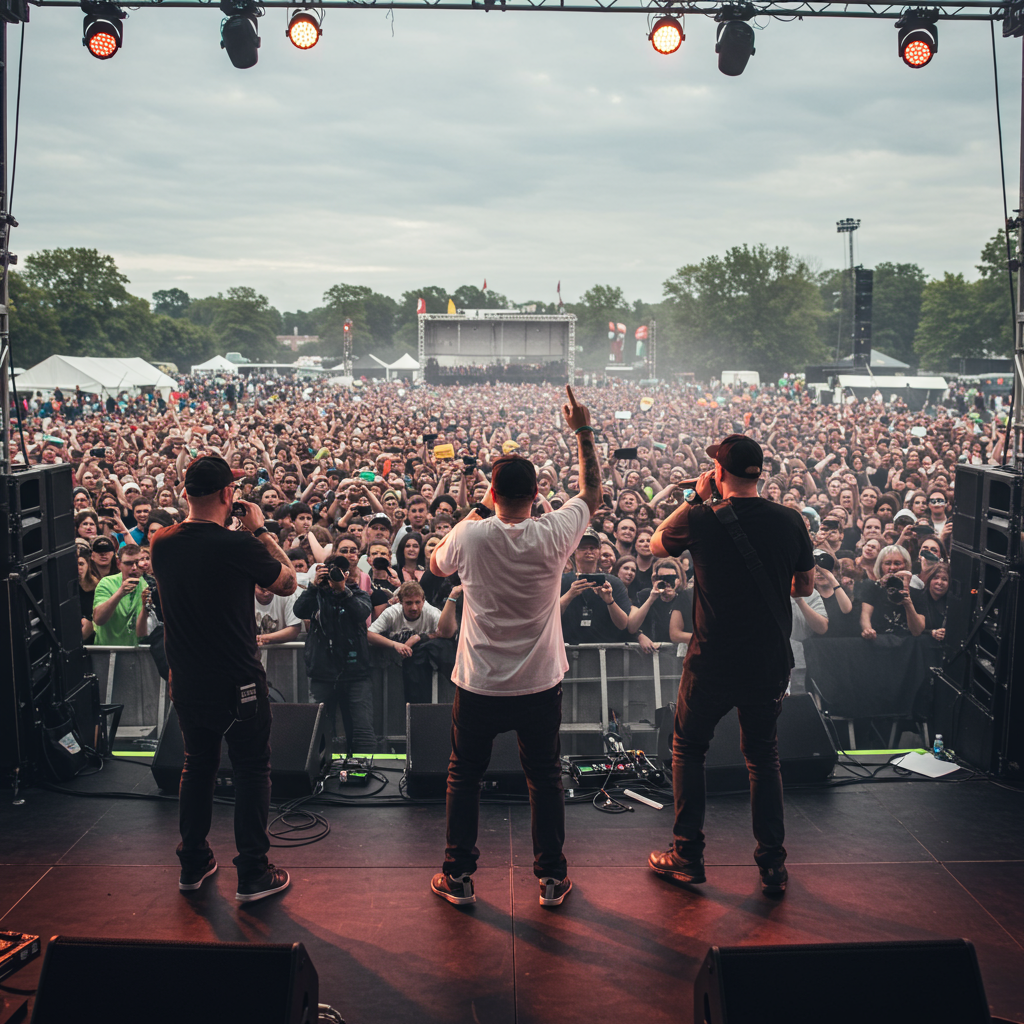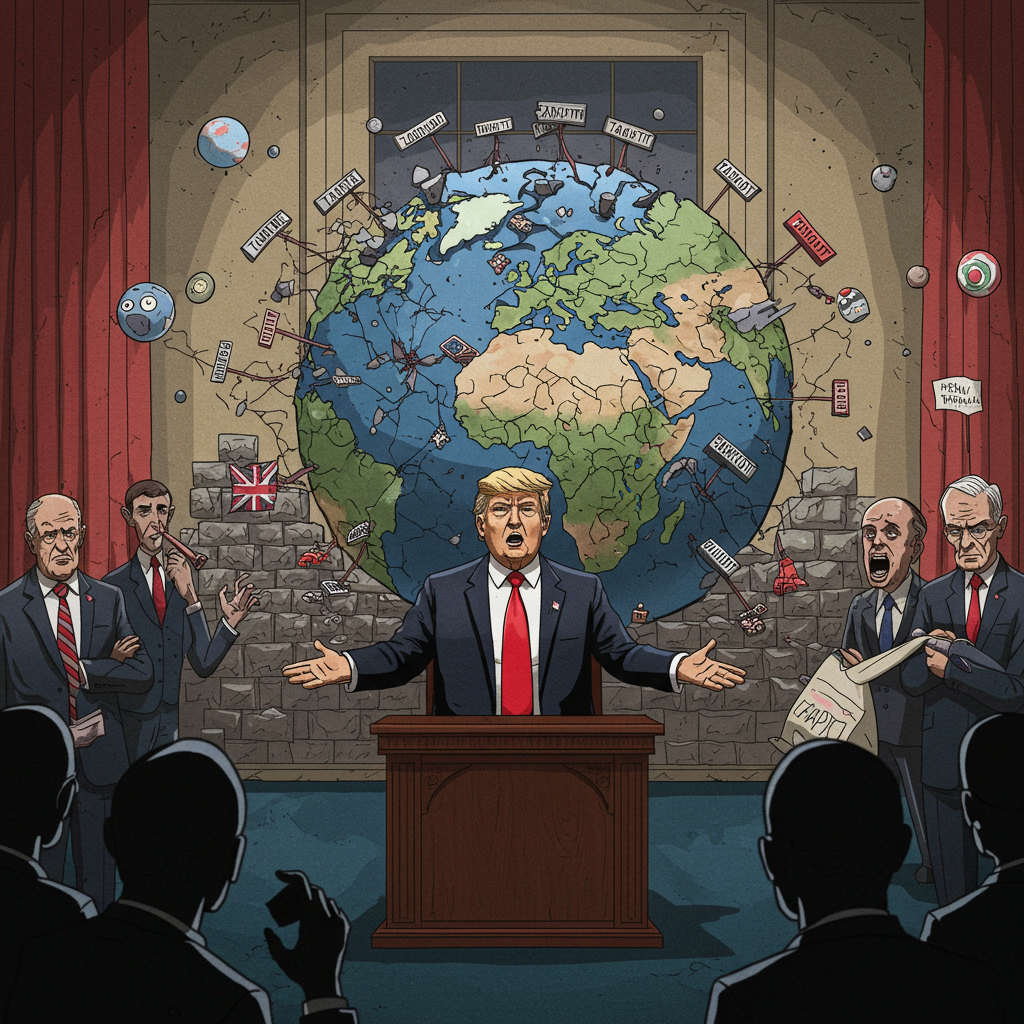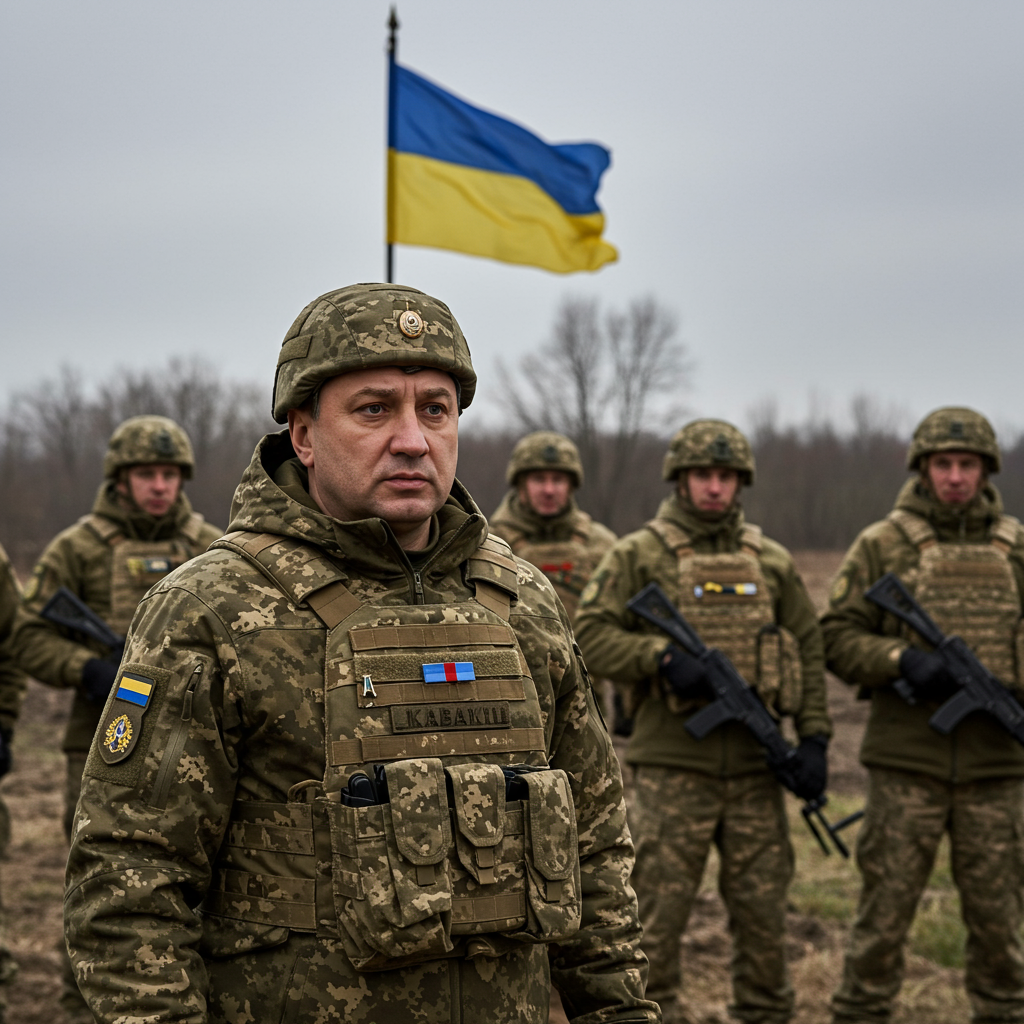Northern Irish rap trio kneecap delivered a high-energy performance at the glastonbury Festival on Saturday, June 28, 2025, despite significant political backlash and legal challenges facing one of its members. The Belfast group took the stage at the packed West Holts field, providing a defiant set for tens of thousands of fans who had gathered at the iconic Worthy Farm site in Somerset, England.
The show proceeded amid vocal criticism from some British politicians, who had questioned whether the controversial group should be given a platform at the prestigious festival. However, Glastonbury organizers Michael and Emily Eavis were reportedly thanked by the band for resisting pressure to cancel their appearance. The performance became a focal point of debate, highlighting the intersection of music, politics, and free expression within the UK.
Navigating Legal Challenges and Political Pressure
Central to the controversy surrounding Kneecap is Liam Óg Ó hAnnaidh, who performs under the stage name Mo Chara. He is currently facing a charge under the UK’s Terrorism Act. This charge stems from an incident in November 2024, where he allegedly waved a Hezbollah flag during a concert in London.
Ó hAnnaidh, who is on unconditional bail, is awaiting a further court hearing scheduled for August. Addressing the crowd at Glastonbury, he openly referenced his legal situation, reportedly shouting, “Glastonbury, I’m a free man!” as the trio began their set. This moment underscored the very real legal pressures the band is currently navigating while maintaining a public presence.
The band has consistently denied supporting Hezbollah or Hamas and stated they do not condone violence. Ó hAnnaidh has claimed he picked up the flag without knowing its meaning at the time. Kneecap members argue that the intense scrutiny and criticism they face are attempts to silence them due to their outspoken support for the Palestinian cause, particularly in the context of the ongoing conflict in Gaza.
Kneecap’s Uncompromising Performance
The Kneecap set at Glastonbury was not just a musical performance; it was a statement. The show reportedly opened with an audio montage featuring various news clips that referenced the band’s critics and their ongoing legal issues. This served as a direct acknowledgement of the surrounding controversy, setting a defiant tone for the rest of the gig.
Throughout their performance, known for its anarchic energy and ability to whip crowds into a frenzy, the trio engaged the audience in political chants. Reports indicate they led chants including “Free Palestine” and “Free Mo Chara,” directly linking their cause to their member’s legal situation and global political events. The energy in the West Holts field was palpable, with fans reportedly forming a large mosh pit during their high-energy numbers.
The band did not shy away from directly addressing their political opponents. They reportedly directed an expletive-laden chant towards UK Prime Minister Keir Starmer. Starmer had previously stated that he didn’t believe it was “appropriate” for Kneecap to perform at Glastonbury, joining other politicians like Conservative leader Kemi Badenoch in expressing disapproval, particularly regarding potential BBC coverage. The band also gave a shoutout to Palestine Action, a protest group that the British government has indicated plans to ban under terrorism laws.
Artistic Expression Meets Irish Republican Symbolism
Kneecap, based in Belfast, has garnered attention not only for being an Irish-language rap group but also for its distinctive artistic approach. Their style blends satirical lyrics, explicit language, and a heavy reliance on symbolism associated with the Irish republican movement. This movement advocates for the unification of Northern Ireland, which is currently part of the United Kingdom, with the Republic of Ireland.
The group’s name itself is controversial and deeply rooted in the history of Northern Ireland’s Troubles, a three-decade period of intense violence involving Irish republican militants, pro-British Loyalist militias, and UK security forces that resulted in over 3,600 deaths. A “kneecapping” was a brutal punishment, involving shooting someone in the leg, often meted out by paramilitary groups to alleged informers or drug dealers. By adopting this name, Kneecap deliberately invokes this difficult and violent past, using it as a provocative artistic statement.
The band’s lyrics frequently contain expletives and references to drug use, adding another layer to their often provocative image. While praised by some for revitalizing the Irish-language cultural scene, their political statements and the alleged videos showing them shouting slogans like “up Hamas, up Hezbollah” and calls for violence against lawmakers have drawn significant criticism.
Despite these allegations, which the band denies, their stance has resonated with a segment of the public and has brought them both notoriety and a dedicated fanbase.
The Wider Impact of the Controversy
The controversy surrounding Kneecap extends beyond their Glastonbury performance. Their vocal support for the Palestinian cause, particularly highlighted during their appearance at the Coachella Valley Music and Arts Festival in California in April 2025, has led to calls for their US visas to be revoked. At Coachella, they reportedly accused Israel of committing genocide against Palestinians, allegedly enabled by the U.S. government.
This sustained backlash has already had tangible consequences for the band. Reports indicate that several of their previously scheduled gigs have been cancelled as a direct result of the ongoing controversy and the pressure placed on venues and promoters.
However, the band’s decision to proceed with their Glastonbury set, and the festival’s choice to host them, was viewed by many fans as a stand for free speech. Gemma Gibson, a fan from Newcastle, was quoted saying that not allowing the group to play “would be completely against everything that Glastonbury stands for.” She emphasized the importance of being able to speak freely and stand up for what is right, suggesting that Glastonbury was the ideal place for Kneecap to perform.
The BBC, which traditionally broadcasts numerous performances from the Glastonbury Festival, made a notable decision regarding Kneecap’s set. While they did not show the performance live, they announced plans to make it available for viewing online at a later time. This decision reflects the sensitive nature of the band’s appearance and the differing opinions on providing them with a platform.
The Kneecap performance was just one of thousands of acts at the sprawling Glastonbury Festival, which welcomed approximately 200,000 ticket holders to Worthy Farm. The festival featured nearly 4,000 performers across 120 stages, including major headline acts like Neil Young, Charli XCX, Rod Stewart, Busta Rhymes, Olivia Rodrigo, and Doechii. Other notable moments from the festival included surprise sets from acts like Pulp and Lorde, a performance by Alanis Morissette, and the return of Lewis Capaldi.
Frequently Asked Questions
Why was Kneecap’s Glastonbury performance controversial?
Kneecap’s performance faced controversy primarily due to political pressure and legal issues surrounding the band. One member, Liam Óg Ó hAnnaidh (Mo Chara), is charged under the UK’s Terrorism Act for allegedly waving a Hezbollah flag. British politicians criticized the festival for providing a platform to the group, citing this charge, the band’s use of Irish republican symbolism, provocative lyrics, and past political statements regarding the conflict in Gaza.
What is the terror charge against Kneecap member Liam Óg Ó hAnnaidh?
Liam Óg Ó hAnnaidh, performing as Mo Chara in Kneecap, has been charged under the UK’s Terrorism Act. The charge relates to an incident in November 2024 where he allegedly waved a Hezbollah flag during a concert in London. He is currently on unconditional bail and is scheduled for a court hearing in August 2025.
What is the significance of Kneecap’s name and political stance?
Kneecap’s name is a deliberate and provocative reference to the brutal punishment method used by paramilitary groups during Northern Ireland’s Troubles. It reflects their use of Irish republican symbolism and their willingness to engage with the region’s violent history in their art. The band is also known for its strong support for the Palestinian cause, which they express through their music and public statements, often linking it to broader themes of resistance and identity. This political stance is a core part of their identity but also a major source of controversy.
The Kneecap performance at Glastonbury underscored the band’s defiance and the complex relationship between artistic expression, political activism, and public platforming. Despite significant opposition, they delivered a powerful set, reinforcing their reputation as one of the most politically charged and controversial acts in contemporary music.
Word Count Check: ~1050 words



